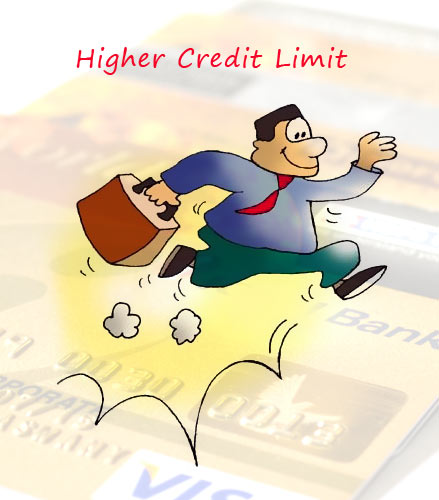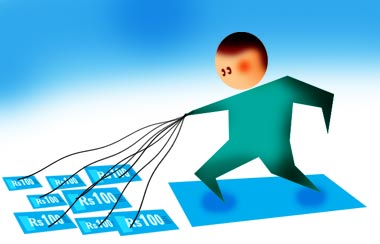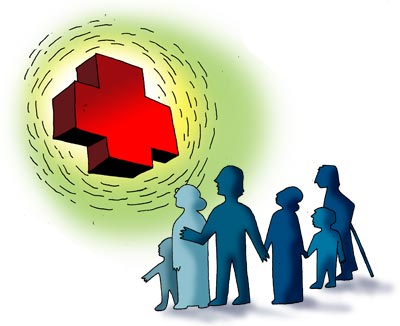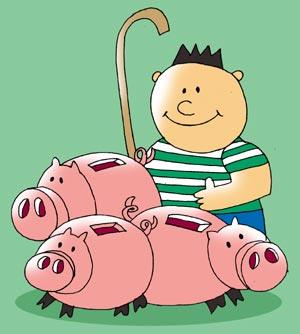Photographs: Dominic Xavier/Rediff.com Rajiv Raj
There are four distinct advantages the most important among them being a good credit score
An enhanced credit limit on your credit card has its many advantages. Not only does it give you some extra cash to spend in an emergency, it also helps you improve your CIBIL score.
Getting a call from your bank offering an enhanced credit limit on your credit card is a good sign. First, it means you are a good customer who pays on time.
Second, it offers some more headroom to spend money on credit.
But the third is the most important point that most people are not aware of -- it helps you build good CIBIL credit score.
Here is how it takes you there:
Please click NEXT for more...
The author is a credit expert with 10 years of experience in personal finance and consumer banking industry and another 7 years in credit bureau sector. Rajiv was instrumental in setting up India's first credit bureau, Credit Information Bureau (India) Limited (CIBIL). He has also worked with Citibank, Canara Bank, HDFC Bank, IDBI Bank and Experian in various capacities.
Why you must take that raise (on your credit limit)
Photographs: Dominic Xavier/Rediff.com
Low credit utilisation
The moment you get higher credit limit, your credit utilisation ratio goes down, which in turn helps you to improve your credit score.
For example, assume that you spend Rs 50,000 per month on your credit card that has a credit limit of Rs 1 lakh. Here the credit utilisation ratio stands at 50 per cent.
If the credit limit is enhanced to Rs 1.5 lakh, and you keep your monthly spends constant, your credit utilisation ratio falls to 33 per cent.
Low credit utilisation against offered credit limits means you are in a good financial shape. If you can sustain credit utilisation ratio at low levels, it surely helps in lifting your credit score, which is popularly known as CIBIL score in India.
Why you must take that raise (on your credit limit)
Photographs: Dominic Xavier/Rediff.com
Better handling in an emergency
Higher credit limit on credit cards means you have some elbow room to spend. This comes to rescue when there is a financial emergency.
Though most financial planners advise keeping at least six months of family expense in a fixed deposit to address such financial emergencies, not everyone can start her/his financial journey with adequate emergency fund.
High credit limits can offer you some respite till the time you build your emergency funds. Even if you have an emergency fund in place, you may not reach it if you are travelling abroad, and in such situations a credit card can rescue you.
Why you must take that raise (on your credit limit)
No need for multiple cards
If one bank is willing to offer a credit limit that comfortably takes care of your monthly credit spends, there is no need to go to more banks asking for credit cards.
For example, if you have one credit card with credit limit of Rs 5 lakh and you have monthly spends of Rs 50000, one such card is sufficient for you.
Sticking to one card, helps in keeping a track of your spends, keeping that card in safe custody and more important -- paying off the dues on time as you have only one date to remember.
Why you must take that raise (on your credit limit)
Photographs: Uttam Ghosh/Rediff.com
More rewards
If the bank offers you higher credit limit, you may consider making some mandatory spends on credit cards, that you were earlier doing in cash or by using cheque.
For example, payment of insurance premium and utility bills can be done using credit cards. You either get more reward points or you take home some cash back. Both ways you win.
Pros and cons:
- Though higher credit limit on your credit card means you have more freedom, be careful with using credit.
- Spend within your means and pay off your credit card dues on time.
- If you can keep your credit utilisation ratio low in addition to timely repayments, you get good credit score which in turn helps you to secure cheaper credit in future.
- Going overboard with high credit limits, however, is a prescription to poor credit score and poor financial health.







Comment
article